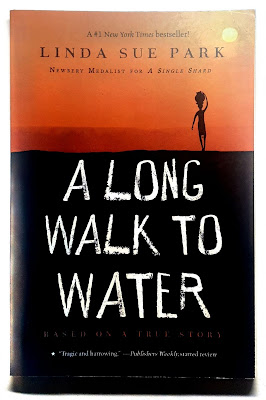A Long Walk to Global Citizenship part 1
This is a three part series of the global project that was launched in August 2020. This global project was launched about the book every Sawlian learned during class time, A Long Walk to Water. Since all Sawlians had read it, anyone could join the project. Students could organize their team to three people maximum. The participants had to submit their work until August 30, 12 p.m. by sending an email to Jeon Yeji teacher and Kang Jiyoung teacher.
What Types of Project?
Students could choose to do one of the two different categories for the project. One category was to write a report. The other was free-creation.
In the report category,
the participants had to create a report in Korean about what they did during
summer vacation. They had to carry out the schedule they planned. The purpose
of the schedule was to solve the main characters’ problems, such as a lack of
water and the Sudanese Civil War.
Background to Deeply Think About
The global project engages students with the material from A Long Walk to Water. South Sudanese Civil War is the background of Linda Sue Park’s novel. In the novel, there are the stories of Salva from 1985 and Nya from 2008.
Salva is a boy from the tribe Dinka and
had suffered from the war, becoming a refugee. He had lost his family and seen
a lot of deaths, including his friend and uncle. He walked such a long journey
for a little boy with loneliness. Nya is not in a situation of war, but she was
suffering from scarce water and medical problems. Thus, both Salva and Nya are
affected by the war, even though their stories are set in different decades.
Discriminated in Sudan
With their stories, Linda Sue Park lets the readers know about the discriminations and disadvantages of being male, female, and children during those times in Sudan. There appears a kind of duty with two genders, male and female.
Men were drafted for military service in severe
wartime without their opinion or consent. Furthermore, lots of people have to
lose their life due to wars of religion and tribes.
Nya had to walk again and again because fetching water and wood is a
job for women. Also, the housework and taking care of children were described
as women’s jobs, too. They could not experience formal education because of
their gender. Like these, the author described Sudan’s unfair and meaningless
fight and sad sacrifices.
The stories of two young people teach
issues about wars, a lack of water, medical aid, famine, refugees are not something
people can honestly know about. We need to take action to solve those problems
as global citizens. By exploring the issues in the classroom, Sawlians had made
practical and meaningful processes for their unique projects during the 2020 summer
vacation, based on these global issues.


Comments
Post a Comment